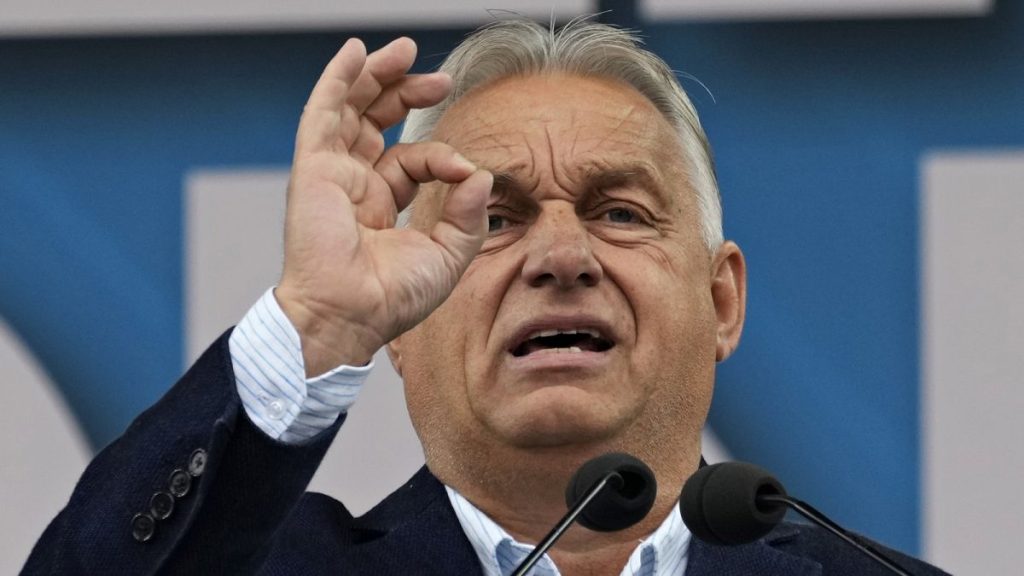The European Peace Facility, which is currently used to reimburse member states for weapons and ammunition donated to Ukraine, is facing a backlog of €6.6 billion due to Hungary’s veto on military assistance. European Union officials and diplomats are exploring a new plan to make financial contributions to the EPF voluntary, rather than mandatory, in order to bypass Hungary’s veto. This proposal is still in the early stages and would require unanimous support from all 27 member states.
Prime Minister Viktor Orbán of Hungary has been a vocal critic of the EU’s military support for Ukraine, labeling it as a “pro-war policy.” His refusal to lift the veto has caused frustration in Brussels and hindered support for Ukraine’s resistance against Russian troops. The proposed reform of the EPF to a voluntary contribution system is seen as a way to provide an alternative funding mechanism without requiring Hungary’s participation.
However, some diplomats warn that making the EPF voluntary could set a dangerous precedent and weaken the EU’s united front against the Kremlin. It may also prove to be a hard sell to national parliaments in certain member states. The reform raises budgetary issues and operational concerns about the long-term sustainability of the EPF as an instrument for supporting Ukraine in times of conflict.
The ongoing impasse between Hungary and the EU over military assistance to Ukraine dates back to May 2023 when OTP Bank was blacklisted by Ukraine’s anti-corruption agency as an “international sponsor of war.” Despite OTP Bank being removed from the blacklist, Hungary has maintained its veto, demanding unconditional guarantees to prevent similar incidents in the future. This has led to a significant financial backlog in the EPF, inhibiting support for Ukraine’s defense efforts.
High Representative Josep Borrell has expressed disappointment in the situation and admitted to losing hope that Orbán would lift the veto. The strained relationship between Hungary and the EU, as well as the ongoing conflict with Ukraine, has hindered progress towards resolving the issue. The proposed reform of the EPF to a voluntary contribution system is seen as a potential solution to bypass Hungary’s veto and release the backlog of funds for military assistance to Ukraine.
Overall, the proposed reform of the European Peace Facility to a voluntary contribution system reflects ongoing efforts to address the deadlock caused by Hungary’s veto on military assistance to Ukraine. While the plan is still in the early stages and faces potential challenges, it represents a possible alternative funding mechanism to support Ukraine’s defense efforts in the face of Russian aggression. The need for unanimous support from all 27 member states underscores the complexity of the issue and the importance of finding a compromise to ensure continued support for Ukraine in its conflict with Russia.


